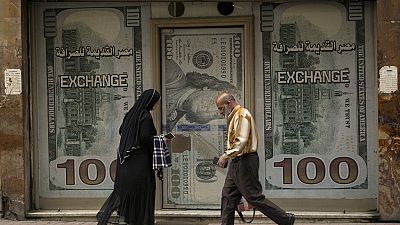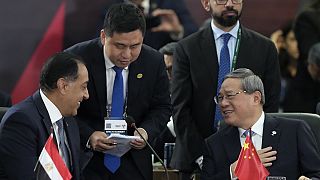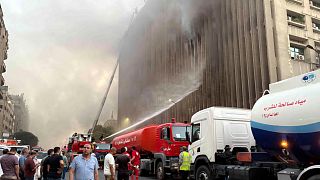Egypt
The Egyptian pound is falling against foreign currencies, approaching 50 per U.S. dollar after a recent increase in metro fares and fuel prices.
The currency hit 49.16 per U.S. dollar on Tuesday, the Central Bank of Egypt said on its website.
In June and July, the Egyptian pound fluctuated between 47 and 48 per dollar after its IPO in March and lost about 60% of its value, falling to around 30 per dollar.
The new exchange rates come a week after the International Monetary Fund (IMF) completed its third financial review of Egypt, authorizing the government to draw down $820 million . The amount is part of an $8 billion bailout loan to support Egypt's struggling economy, which has been hampered by a shortage of foreign currency , soaring inflation and unrest in the Red Sea caused by attacks by Yemen's Houthi rebels.
"Recent efforts by the Egyptian authorities to restore macroeconomic stability have started to show positive results. Inflation remains high but is declining. A flexible exchange rate regime remains the cornerstone of the authorities' program ," the IMF said last week.
Egyptians are grappling with runaway inflation, with the oil ministry announcing late last month that fuel prices would rise by about 10 percent.
The last fuel price increase took place in March, with the government attributing the price hikes to the rising cost of fuel due to the Red Sea attacks and the depreciation of the Egyptian currency.
The Houthis have attacked commercial ships in the Red Sea in retaliation for Israel 's war in Gaza. Oil, natural gas and grain, among other goods, travel through the sea lanes that separate Africa and the Arabian Peninsula to reach the Suez Canal , which typically carries 12% of world trade .
Cairo Metro fares also officially increased last week, according to the National Tunnels Authority, which manages and operates the Cairo Metro. The increased fares now range between 2 and 5 Egyptian pounds.
Egypt reached an agreement with the IMF in the spring to more than double the size of its bailout , which now stands at $8 billion. The price increases were deemed necessary to meet the IMF's conditions for continued aid to the country.














11:17
Bridging the legal gap in Africa’s digital boom {Business Africa}
01:54
"Great economic potential in Africa": five African leaders have lunch with Trump
11:19
Cyber Africa Forum highlights Benin's bold digital resilience [Business Africa]
Go to video
World Bank grants South Africa $1.5B for infrastructure, green energy
11:16
Angola hosts U.S.-Africa summit amid calls to revive trade ties {Business Africa}
01:30
Abu Dhabi hosts first Global South Economic Forum